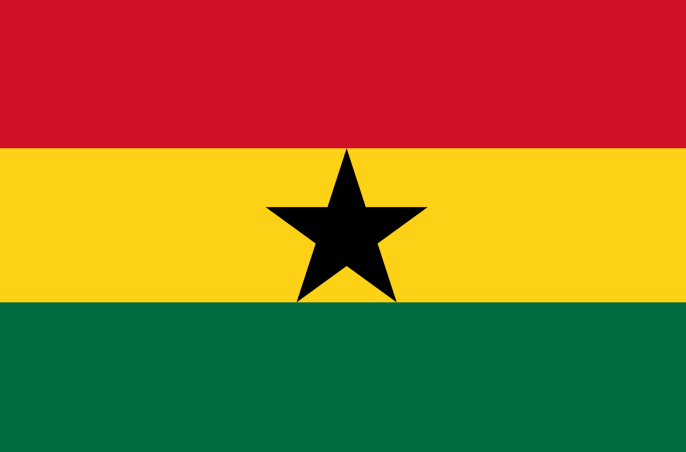GHANA: Mobile money transactions hit GH₵953.2 billion in 2021

The total value of mobile money transactions in 2021 is estimated at GH₵953.2 billion, Finance Minister Ken Ofori-Atta has revealed.
He was speaking at a press conference to update the public on measures put in place so far to ensure that the smooth implementation of the controversial electronic transfers levy (E-levy) Bill.
Ghana has over 40.5 million mobile phone subscribers and more than 17.1 million of them have active mobile money wallets.
The Finance Minister said the total value of mobile money transactions grew by a Compound Annual Growth Rate (CAGR) of 65% between 2016 and 2021, rising from GH₵78.5 billion to the current GH₵953.2 billion.
In the previous year, 2020, the value of mobile money transactions hit GH₵564 billion. So the figure almost doubled in just one year.
Indeed, mobile money now stands out the most preferred digital payment method in Ghana, making Ghana one of the fastest-growing mobile money markets in Africa.
Simplicity of use
Unlike other digital payment methods which require stable internet connection, mobile money works with a USSD code, making it the most preferred mode of digital payment in the country. It is simple and easy to use.
E-levy
In the 2022 budget, government introduced an Electronic Transfers Levy (e-levy) of 1.75% targeted mainly at mobile money transfers because of its magnitude.
The e-levy will affect mobile money transfers between accounts on the same Electronic Money Issuer (EMI), mobile money transfers from account on one EMI to a recipient on another EMI, transfers from bank accounts to mobile money accounts, transfers from mobile money accounts to bank accounts, and bank transfers on a digital platform application which originates from a bank account belonging to an individual to another individual
What e-levy does not affect
On the other, e-levy will not affect cumulative transfers of GH₵100 daily made by the same person, transfers between accounts owned by the same person, transfers for payment of taxes, fees, levies on the Ghana.Gov platform, electronic clearing of cheques, specified merchant payments to commercial establishments registered with the Ghana Revenue Authority (GRA) for income tax and Value Added Tax (VAT) purposes, transfers between principal, master agents and agent accounts.
NDC opposed to e-levy
E-levy is a controversial debate in the country, with the opposition National Democratic Congress (NDC) kicking against it.
E-levy to be resubmitted to Parliament
But, Mr Ofori-Atta announced that the e-levy component of the 2022 budget will be resubmitted to Parliament for approval.
Extensive consultation with stakeholders
According to him, this follows extensive consultation with stakeholders and the agreement reached with telecommunication operators to reduce mobile money charges by 0.25% so as to reduce the overall net impact of e-levy on subscribers.
He looks forward to joining hands with Members of Parliament (MPs) to approve the e-levy on a consensus basis to collectively address the big issue of unemployment, debt sustainability and infrastructure build-up.
Reduction of charges by 0.255
Mr Ofori-Atta stated that the reduction of charges which was agreed upon in the “true spirit of burden-sharing”, he said, is a key measure to raising resources to improve fiscal position “while keeping an eye on transaction costs and consumer welfare, and reducing the impact on the average Ghanaian and keeping the resources required for our growth agenda”.
Extensive public engagement begins
To further deepen consultation, he announced that the ministry, in partnership with Ministry of Information and other government agencies, would embark on extensive public engagement to educate Ghanaians on the essence of the e-levy.
Tax to GDP
The e-levy, he said, is a necessary tool to increase tax to Gross Domestic Product (GDP) from 13% to 16%.
Revenue to GDP ratio has languished between 11.3% in 2016 to 12.5% in 2021 compared to 16% to 20% of Ghana’s peers.
Also, VAT revenue is at 11-13% compared to 18-44% of peers.
He lamented that while tax to GDP is lower compared to Ghana’s peers, only about 2.4 million people pay personal income taxes out of the total population of 30.8 million.
“Clearly, this is an unsustainable way to anchor the extensive transformation agenda (articulated in our GhanaCARES ‘Obaatanpa’ programme),” he explained.
Mr Ofori-Atta said the 2022 budget is to stabilise the economy and address the greatest challenges of triple helix of debt, digital and physical infrastructure deficit (especially roads) and unemployment.
Backdrop for the introduction of the e-levy
The Finance Minister noted that the most efficient way to expand the tax net is to take into consideration technology and the structural changes in the tax handles, hence the introduction of the e-levy, which is one of the key tax measures of 2022 budget.
He explained that the two major sources of income to pay for expenditures for any government are taxes and borrowing, and the balance will tilt one way or the other depending on the capacity to mobilise revenues.
He said the public sentiment out there is clear: Ghana must collect its taxes to avoid debt accumulation, build roads, and get the youth to work.
In view of this, he said the project of burden sharing for shared prosperity must be embraced by all.
SOURCE: NEWSGHANA
 Africas leading resource for digital financial services
Africas leading resource for digital financial services


comments